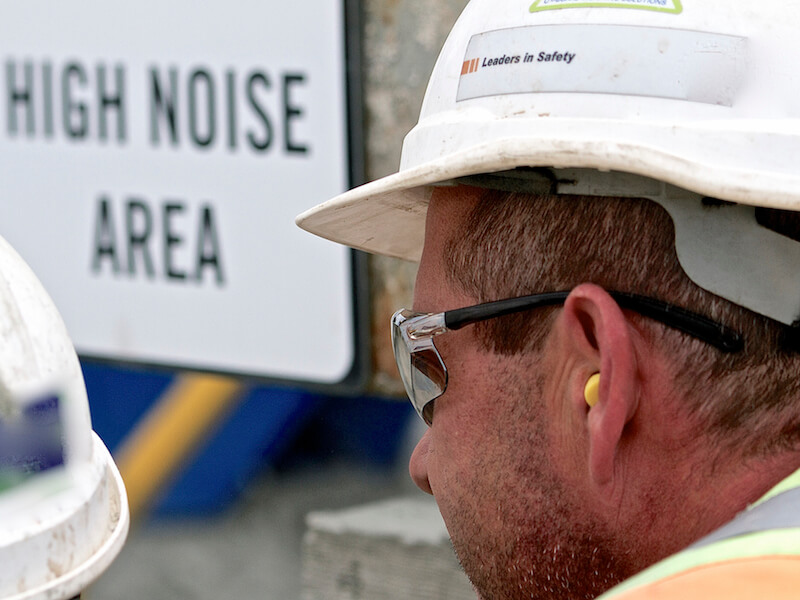
Your hearing can be harmed by a noisy workplace and it can also affect your concentration. Even moderate noise, when experienced for eight hours a day, can begin to weaken the health of your hearing. For this reason questions like “what hearing protection do I need?” are worth asking.
Most of us probably didn’t even know there were numerous levels of hearing protection. But it seems logical when you stop to consider it. A truck driver won’t require the same level of protection that a jet engine mechanic will.
Hearing Damage Levels
The basic rule of thumb is that 85 decibels (dB) of sound can begin damaging your ears. Putting sound into context with regards to its decibel level and how dangerous it is, isn’t something most of us are used to doing.
Eighty-five decibels is approximately how loud city traffic is when you’re sitting inside your car. That isn’t a big deal, right? Actually, it’s pretty significant. At least, it’s a biggie after several hours. Because the duration and frequency of exposure are extremely important when it comes to damaging noise exposure.
Typical Danger Zones
It’s time to consider hearing protection if you’re exposed to noise at 85 dB or louder for 8 hour days. But there are some other important thresholds to take note of. If you’re exposed to:
- 90 dB (e.g., lawnmower): Anything above four hours will be harmful to your ears.
- 100 dB (e.g., power tools): Your hearing will be injured when exposed to this level of noise for 1 hour a day.
- 110 dB (e.g., leaf blower): Damage to your hearing occurs after 15 minutes of exposure to this noise level.
- 120 dB (e.g., rock concert): Any exposure can cause harm to your ears.
- 140 dB (e.g., jet engine): This level of noise will lead to immediate damage and most likely pain to your ears.
You’ll want the hearing protection you choose to be sufficient to bring the volume below that 85 dB level, particularly if you are exposed to those noises for any amount of time.
Find a Comfortable Fit
The effectiveness of ear protection is quantified by something called a Noise Reduction Rate, or NRR. Outside sound will become progressively quieter the higher the NRR.
It’s very important that you choose hearing protection with a high enough NRR to keep you safe (and your workplace will typically make suggestions about what level might be appropriate).
Comfort is also an essential factor to think about. It’s really important that your hearing protection is comfortable to wear if you want to keep your hearing safe. Why? Because if your hearing protection is uncomfortable, you won’t wear it.
Hearing Protection Choices
You’ve got three basic options to choose from:
- Earmuffs.
- In-ear earplugs
- Earplugs that sit just outside of the ear canal.
Each form of protection has benefits and drawbacks, but most of your hearing protection choices will depend upon personal preference. For some people, earplugs are irritating, so earmuffs may be a better choice. For other people, the ability to put earplugs in and leave them in is a better alternative (obviously, you won’t want to forget them for too long… you should remove them at the end of your workday. And clean them).
Consistently Use Protection That Works Best For You
Comfort is essential because any lapse in your hearing protection can result in damage. If earmuffs are scratchy and uncomfortable you’re more likely to take them off for short periods and that can have a negative effect on your hearing over time. This is why hearing protection that you can leave in for the entire workday is the best choice.
Investing in the level of hearing protection you need can help keep your ears happy and healthy.
Call Today to Set Up an Appointment

